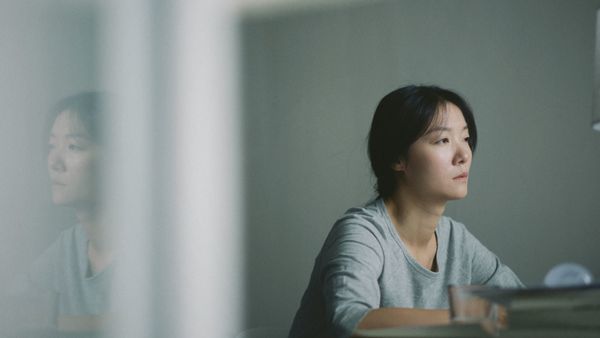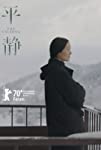Eye For Film >> Movies >> The Calming (2020) Film Review
The Calming
Reviewed by: Anne-Katrin Titze

Song Fang’s The Calming, produced by Jia Zhangke (who has Swimming Out Till The Sea Turns Blue also in the Main Slate of the New York Film Festival) begins with documentary filmmaker Lin Tong (Xi Qi) visiting Tokyo for the first time. She remarks on how green it is, even in winter. Greenery and travel form the skeleton of this soothing film, which deals with the aftermath of a breakup. Lin meets up with an older Japanese acquaintance, the man who had introduced her to the ex-boyfriend Guiren whom we never see. “We met because of you, I thought it’s better to tell you,” she says. He doesn’t really know how to react.
The real-life clumsiness, the awkward pauses in human interactions are captured attentively; these are the most precise moments of the film. Before leaving on a short trip to snowy Niigata in central Japan, Lin reconnects with an actress, Makiko (Makiko Watanabe), whom she met only briefly at a festival. Makiko, who apologises for the state she is in, because of her very ill mother, is making an honest attempt to bond with Lin.

The Calming, shot in Beijing, Nanjing, Hong Kong, Tokyo, and Niigata by Songye Lu, is a thoroughly calm picture that gives us time to reflect on the observed details and build up a character. Lin doesn’t take a plastic bag in the store and puts the two bottles in her own large blue fabric shoulder bag. She doesn’t drive and is seen often in the back of cars, on trains, on a boat, or walking and hiking through all the parkland of the places she visits. We never see her use a cellphone. In many instances it is what Lin doesn’t do. She observes nature and doesn’t take pictures with a camera. We see her write by hand on her massive raw wood desk, the laptop stays mostly closed. At moments you might think the actions take place in the 70s.
Lin likes turtlenecks in neutral shades, charcoal gray, for instance, paired with a navy coat and her hair in a long braid. In Niigata she looks at the landscape, has tea, browses books on Snow Country, walks through the village. Snow gently falls from a tree way up high when a bird lifts off in flight. She has soup in a small restaurant and overhears three boys discuss baseball. They could be the grandsons of the kids in Yasujiro Ozu’s Ohayo. Is Lin thinking this? Or is director Song Fang playing with the master’s tropes? A moment at the train station looks like a clear visual Ozu homage; during one of two later visits by Lin to her parents (Ye Yuzhu plays her mother, Song Dijin is her father) in Nanjing, a Tokyo Story question comes up; her relationship to them is as tender as it is dutiful.
Back home in Beijing, Lin is moving to a new apartment. She cleans the fridge and the sink and explains to a visiting colleague a religious ceremony she filmed. We don’t get to see “the small bottle gourd” she talks to him about, but her face. As if catching audiences in their own movie clichés, he talks about “filming the Milky Way” and that he got engaged because of it.
At her parents’ house, she cooks rice porridge for her ill father and looks out with her mother at the barren trees, one of which holds a big nest. During a visit to Hong Kong to present her film on the forest, Lin catches up with her girlfriend Xuemei (Chen Yadi), who had moved there with her husband Darren and now has a young son Yinou. The boy’s shyness and how he observes the newcomer feels very authentic.
How does healing from heartbreak work? Physical collapse? Nature? Time heals all wounds? Music? We see Lin cry for the first and only time, while she sits in the audience, listening to Georg Friederich Händel, with Thomas Morell’s libretto urging to “Convey me to some peaceful shore where no tumultuous Billows roar.” Lin’s mother, meanwhile, suggests another remedy when she reminds her daughter “You always loved snow - like a puppy.” At a Q&A for her documentary, an audience member has to wait for the microphone to arrive. Added seconds like this, give The Calming its judicious rhythm.
The Calming, which had its world première at the Berlin Film Festival, is now having virtual screenings at the New York Film Festival and is in cinemas during the San Sebastián Film Film Festival.
Reviewed on: 20 Sep 2020
















